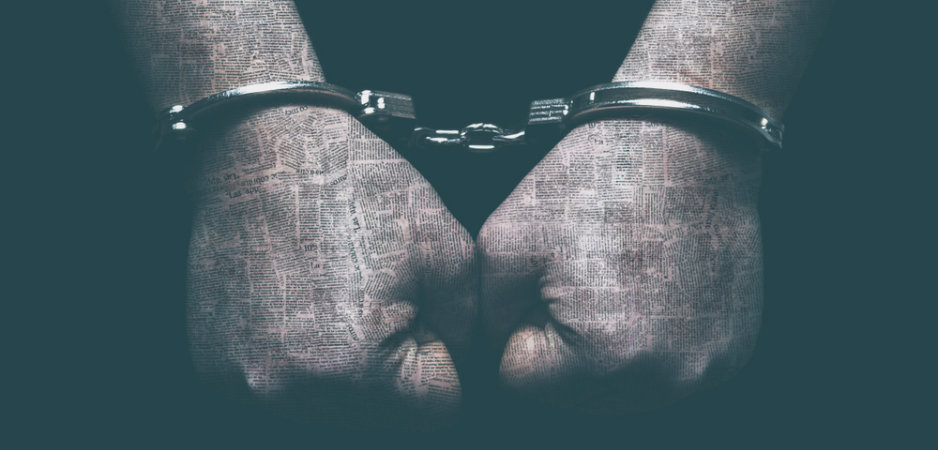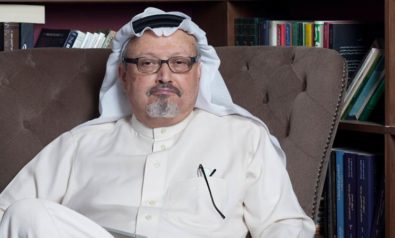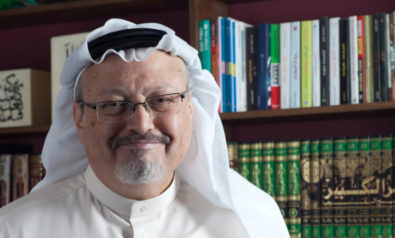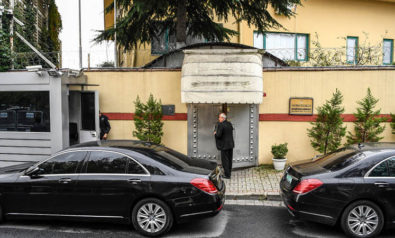When most of the citizens are misinformed and controlled through the government narrative, it is easy for the dictator to control, and keep controlling, the population.
I was amongst those who were in denial about the possible murder of Saudi journalist Jamal Khashoggi in the kingdom’s consulate in Istanbul earlier this month. It was not because I think the Saudi regime is not capable of murder, but because it would be a bad decision to invite a critic into the country’s diplomatic mission in order to murder him. Also, if I am being honest, I did not want to believe it.
Nevertheless, our worst fears have been confirmed, and we have to accept what happened. On October 17, The Washington Post published Khashoggi’s last column which it had received from his translator a few days after his disappearance. In what were to be his last words, Jamal, as if prescient that this could be his final public statement, was reflecting on the dire state of freedom of expression in the Arab world and its impact on our lives. The fight for freedom, including freedom of expression, is one of the common causes we, Saudi dissidents and critics, stand united in.
Picking up from where Jamal Khashoggi left off, the Arab world needs to be informed. In other words, all we need is freedom of expression, for it is the way of disseminating and sharing of knowledge and information. In his touching last words, Khashoggi emphasized the need to provide a platform for Arab voices to be heard. It is absolutely true that at the core of the problems that we face in the Arab world is the fact that citizens are uninformed, or misinformed. Take, for example, the misinformation campaign that surrounded the Qatar crisis. This is relevant on so many levels and explains most of the development issues we have, and why we are still either developing or undeveloped nations.
Across the Arab world, people are being suffocated, and we have had enough of our regimes’ oppression. We are devoid of the right to freely express and share our opinions, let alone the right to participate in governing our own affairs. When the Arab Spring broke in 2010-11, we were full of hope that a wave of change was finally coming our way. But as the world witnessed, this wave was either kept at bay (Egypt, Yemen), or put down with brutal crackdowns (Syria, Bahrain). Tunisia was the only success story. The Arab Spring and the revolutions it produced are one way in which change could happen within the political systems across the Middle East. The other way is a slow, guided and deliberate transformation.
For this transformation to happen, an essential element is to have informed participants, for in an ideal world, a true and just democracy that we all dream of is hinged on the inclusion of all citizens in the political process. However, this is not relevant for the current state of politics across the region where, democratically speaking, the standard falls below absolute zero. What is relevant is the importance of having informed citizens as a precursor to change. When most of the citizens are misinformed and controlled through the government narrative, it is easy for the dictator to control, and keep controlling, the population. For example, just a day after its launch in 2015, the Bahraini authorities have ordered the shutting down of Al Arab TV channel, then under Khashoggi’s management. The reason for censorship was an interview with a figure from Bahrain’s Shia opposition.
A stark example of this approach is also found in the way the Saudi media has covered the disappearance and presumed murder of Khashoggi before finally admitting he was killed inside the consulate. The whole narrative revolved around a conspiracy theory in which the state of Qatar and Khashoggi’s fiancée were to blame. The story went that the journalist had disappeared after he left the consulate and was kidnapped by Qatar in order to initiate a diplomatic rift and a conflict between Turkey and Saudi Arabia. You couldn’t see any other version of events in the Saudi media. Even columnists and writers capitalized on this tragedy — or, more precisely, crime — to defend and praise the crown prince, Mohammed bin Salman (MBS), who is largely believed to have been involved in the murder plot. Because of this, the Saudis did (and do) genuinely believe that MBS is innocent, and that the government is under an unjust attack.
So, if a government manages to misinform its public about what happened to Khashoggi so easily, even though the prevalent counternarrative is much stronger and supported by evidence and logic, imagine how easy it is to misinform the public on other matters.
However, we, the change-makers — dissidents and activists — believe that we can counter this brutal attack on the access to information thanks to the internet, using Twitter and other information-sharing platforms to spread the counternarrative that governments try to block. These are also platforms to freely voice our opinions and takes on public affairs (for lack of alternative forums like parliament). Outlets like Al Jazeera also fill this gap. The Qatari news network has revolutionized news coverage in the Arab region. It is today the number one source for a holistic coverage of events in the Arab world and beyond and a source of reliable information. As such, it constitutes an existential threat to regimes like that of the House of Saud, and that is why it comes under attack by Riyadh and Abu Dhabi.
Jamal Khashoggi’s last words are wisdom. His sound analysis is a reflection of a deep insight into the problem and the solution. We all share his position and we will work to attain our rights starting by freedom of expression.
*[Updated at 21:30 GMT on October 26, 2018.]
The views expressed in this article are the author’s own and do not necessarily reflect Fair Observer’s editorial policy.
Support Fair Observer
We rely on your support for our independence, diversity and quality.
For more than 10 years, Fair Observer has been free, fair and independent. No billionaire owns us, no advertisers control us. We are a reader-supported nonprofit. Unlike many other publications, we keep our content free for readers regardless of where they live or whether they can afford to pay. We have no paywalls and no ads.
In the post-truth era of fake news, echo chambers and filter bubbles, we publish a plurality of perspectives from around the world. Anyone can publish with us, but everyone goes through a rigorous editorial process. So, you get fact-checked, well-reasoned content instead of noise.
We publish 2,500+ voices from 90+ countries. We also conduct education and training programs
on subjects ranging from digital media and journalism to writing and critical thinking. This
doesn’t come cheap. Servers, editors, trainers and web developers cost
money.
Please consider supporting us on a regular basis as a recurring donor or a
sustaining member.
Will you support FO’s journalism?
We rely on your support for our independence, diversity and quality.
















